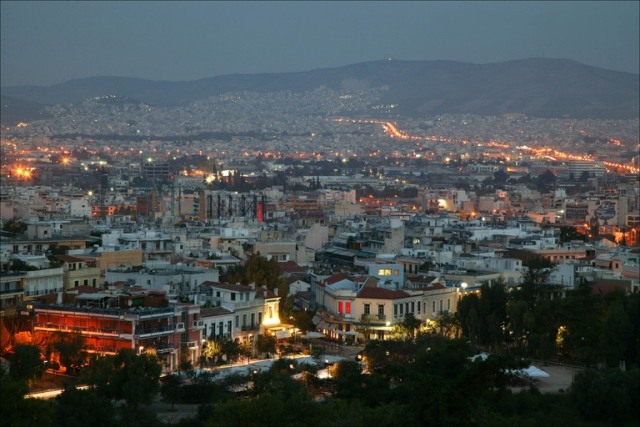ATHENS, Feb 7 (Reuters) – About half of Greek households struggle to pay their mortgages, utility bills and taxes, according to a survey on Thursday that showed the risk to government revenue targets posed by growing financial hardship.
More than 90 percent of households suffered a 38 percent fall in income since the Greek debt crisis started in 2009, the survey by the small businesses’ confederation GSEVEE and polling organisation Marc found.
“Greek households and consumers have reached their financial limits,” GSEVEE said. “They can’t afford additional increases in taxes, electricity prices or income reductions.”
Repeated rounds of spending cuts and tax increases to unlock bailout aid from the European Union and the International Monetary Fund are taking a toll on household budgets as Greece enters a sixth straight year of recession.
Half of those polled said they had to borrow money from friends and relatives to make ends meet in 2012 as one in 10 households have at least one member unemployed.
The survey showed that for 40 percent of households, pensions have become a main source of income. The economic malaise has forced 90 percent to cut spending on clothing, footwear and leisure activities with about 80 percent reporting reduced spending on transport and heating.
If it means saving money, one in two households said they would turn a blind eye to not getting a receipt when they shop, which could hamper efforts to reduce tax evasion.
“The reduction of incomes and over-taxation has led to looser tax morals and the risk of a drop in state revenues is visible,” GSEVEE said.
Another survey, conducted by Public Issue, showed that more than 95 percent believed the country’s tax system was unfair.
Highlighting Greeks’ anger at austerity, several labour unions have taken to the streets despite Prime Minister Antonis Samaras’ resolve to stick with the bailout terms.
The government invoked emergency legislation for the second time in recent weeks on Tuesday, threatening striking seamen with arrest if they did not return to work.
The poll for Kathimerini newspaper and Skai TV showed that Greeks were divided on whether the government’s move was right.



















